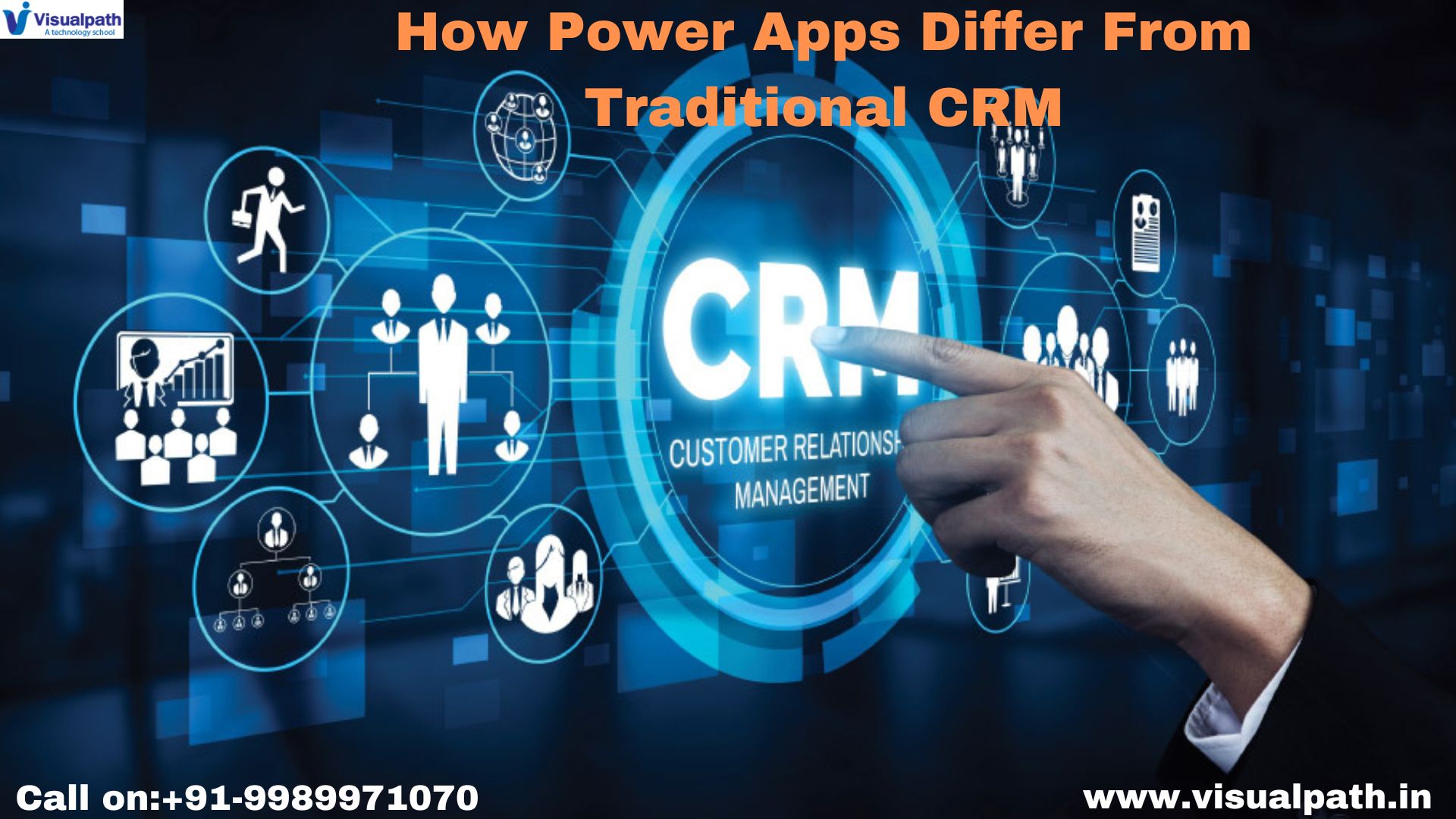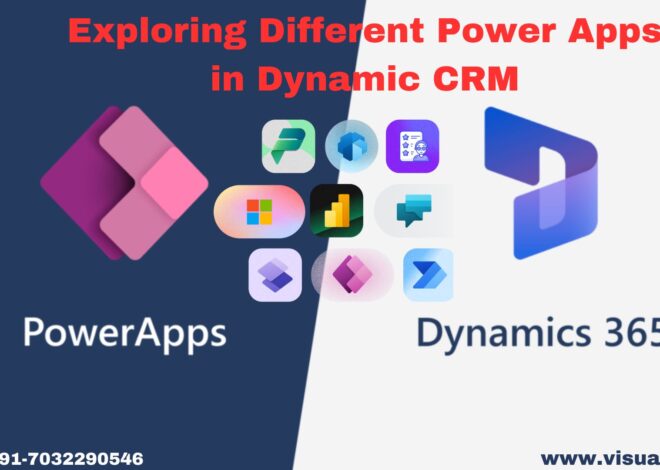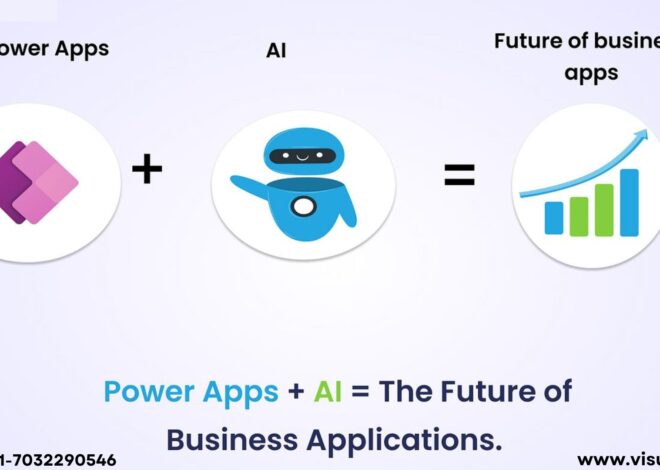
How Does Power Apps Differ from Traditional CRM Training?
Microsoft Dynamics CRM Customer Relationship Management (CRM) systems are pivotal in maintaining and enhancing customer interactions. Microsoft Dynamics CRM, integrated with Power Apps, offers a modern approach to CRM training, distinct from traditional methods. This article delves into the key differences between Microsoft Dynamics 365 CRM training with Power Apps and conventional CRM training, highlighting the advantages of adopting a modern, integrated approach.
1. Customization and Flexibility
Traditional CRM systems often come with predefined functionalities, limiting organizations to the features provided out-of-the-box. Customization, if available, typically requires extensive coding and developer intervention, leading to increased costs and longer implementation times.
In contrast, Microsoft dynamics 365 training Courses integrated with Power Apps empowers users to tailor applications to their specific business needs without extensive coding. Power Apps, a component of Microsoft’s Power Platform, enables the creation of custom applications with a user-friendly interface, allowing for rapid adjustments and scalability. This low-code approach facilitates quicker adaptations to changing business processes and reduces reliance on specialized IT resources.
2. Integration Capabilities
Traditional CRM training often focuses on standalone systems with limited integration capabilities, making it challenging to unify various business processes and data sources. This siloed approach can hinder comprehensive data analysis and decision-making.
MS Dynamics CRM with Power Apps offers seamless integration with other Microsoft services, such as Office 365, SharePoint, and Teams, as well as third-party applications. This interconnected ecosystem allows for a unified platform where data flows effortlessly across different applications, enhancing collaboration and providing a holistic view of customer interactions. Training in this integrated environment equips users with the skills to leverage these connections effectively, fostering a more cohesive business strategy.
3. User Empowerment and Citizen Development
Traditional Microsoft Dynamics CRM Certification training programs often emphasize technical proficiency, requiring users to have a background in programming or rely heavily on IT departments for customization and maintenance. This dependency can slow down innovation and responsiveness to market changes.
The integration of Power Apps with MS Dynamics CRM democratizes application development through the concept of citizen development. Users, regardless of their technical background, can learn to create, modify, and deploy applications tailored to their specific roles and needs. This empowerment leads to increased agility, as employees can swiftly develop solutions that address immediate business challenges without waiting for IT intervention.
4. Cost-Effectiveness and Resource Optimization
Implementing and maintaining traditional CRM systems can be resource-intensive, often involving significant financial investments in infrastructure, licensing, and specialized personnel for customization and support.
MS Dynamics CRM with Power Apps offers a more cost-effective solution by leveraging cloud-based services and a subscription-based model. The low-code environment reduces the need for extensive developer involvement, allowing organizations to allocate resources more efficiently. Training programs that focus on this integrated platform prepare users to maximize these cost benefits, ensuring a higher return on investment.
5. Continuous Learning and Adaptation
Traditional CRM training often involves static learning modules that may not keep pace with the rapid advancements in technology and business practices. This can result in a workforce that is ill-equipped to utilize the CRM system to its full potential.
Training in MS Dynamics CRM with Power Apps emphasizes continuous learning and adaptation. Given the platform’s regular updates and the dynamic nature of Power Apps, users are encouraged to engage in ongoing education. This approach ensures that employees remain proficient in the latest features and best practices, fostering a culture of innovation and continuous improvement within the organization.
Conclusion
The integration of Microsoft Dynamics CRM with Power Apps represents a significant evolution from traditional CRM systems. Training programs that embrace this integrated approach offer numerous advantages, including enhanced customization, seamless integration capabilities, user empowerment, cost-effectiveness, and a commitment to continuous learning. By adopting MS Dynamics CRM training with Power Apps, organizations position themselves to respond more effectively to market demands, drive innovation, and maintain a competitive edge in the ever-evolving business landscape.
Visualpath is the Leading and Best Software Online Training Institute in Hyderabad. Avail complete Microsoft Dynamics CRM Worldwide. You will get the best course at an affordable cost.
Attend Free Demo
Call on – +91-9989971070.
WhatsApp: https://www.whatsapp.com/catalog/919989971070/
Visit: https://www.visualpath.in/online-microsoft-dynamics-crm.html
Visit Blog: https://www.blogger.com/blog/posts/2272332581431606005



